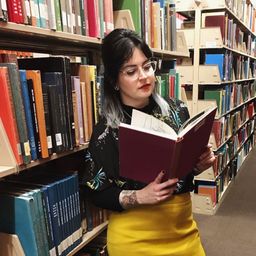Aya Autrui Title : CoVid-19 the Intruder: Reflections on Hospitality and Justice
My Session Status
by
Aya Autrui
What do tourism and hospitality become through the experience of intrusion? We reflect on this question by entering into a conversation with Jean-Luc Nancy’s (2002) philosophy of the intruder. In “L’Intrus”, Nancy shares his reflections on the difficult experience of his heart transplant, which produces all kinds of unwelcomed strangeness. Nancy teaches us how reflecting on intrusion contributes to novel understandings of self, others, hospitality and the world. There is this own strange heart that betrayed him and the intrusion of a foreign heart. His survival now dependent on machinery, surveillance and an assemblage of strangers. There is no “new normal” that can emerge from such intrusion, only a multiplying of strangeness. This radical exposure draws attention not only the strangeness of one’s own body and foreign organs within us, but also to the entire host of problematic lifeforms already inside us. Nancy is warned of the dangers posed to his weakened immunity system by the outside world. But it is not the outside world that is of the greatest concern for Nancy. Once dormant diseases, “the old viruses that have always been lurking in the shadow of my immune system—life-long intrus[intruders], as they have always been there.” (Nancy, 2002, p.9) surface and are set against him.
The traumatic that expands and multiplies strangeness, which Nancy experienced personally with his heart transplant, is now being experienced collectively by the world through the Corona pandemic. Nancy’s intruder is an apt metaphor that helps us reflect on (post-) pandemic-tourism and pandemic-hospitality. The intruder is deeply disruptive, making Nancy ponder “Where are the right measure [justesse] and justice in all this? Who measures them, who pronounces them?” (2002, p. 5-6). These are also the questions for the tourism world of Covid-19.
In 2020 the technological and the natural have reached new levels of entanglement. In this presentation we expose how the virus-intruder reconfigures justice and produces novel forms of tourism/hospitality strangeness by reflecting upon four situations: the Covid-19 passport and movement across frontiers; the accessing of hospitality services under a national lock-down; pandemic intimacy; and the signs of hospitality of pandemic tourist/service encounters. Methodologically we combine philosophical reflection with autoethnographic methods and digital visual ethnography.
Before CoVid19 there was already a hybridization of the technical and the organic/nature/bodily in tourism. These four reflections show how CoVid-19 is both part of this historical entanglement, and the traumatic event that moves the already technologically othered human into another level of strangeness and multiplicity. The pandemic-intruder attunes us to a world of tourism as fragmented, put-together, patched, cyborg-like and dependent on multiple others in a myriad of new ways. Hospitality and tourism are now “more double or multiple than ever” (Nancy, 2002, p.4). We are left asking – What tourism and hospitality are possible with the intruder within? Where is the justice in all this?
References:
Nancy, J. (2002 [2000]). L’Intrus. (S. Hanson, Trans.).East Lansing, Michigan: Michigan State University Press.




Discussion